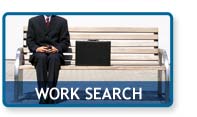Article
 Predict. Prepare. Practice.
Predict. Prepare. Practice.
“Failing to prepare is preparing to fail.” ~ John Wooden
Predict. Prepare. Practice. These are Paula’s 3 Ps for a successful interview.
Predict what questions you will be asked based on what you know about the job you are interviewing for.
The job posting, a job description, an occupational profile, information gained from informational interviews, research about the industry, and internet searches for job related interview questions will all give you hints as to the types of interview questions you might be asked. You can expect to be asked about your ability to do the job – your experience, skills, qualifications, and certifications; your willingness to perform the duties and responsibilities of the position, work the required hours, and to achieve the expected results; and your fit for the position, the team / department you’ll be working with, and the organization. One of the best ways for an interviewer to gauge your suitability for the position is through behavioural based and situational interview questions. Some examples include:
- No workplace is free of conflict. Tell me about a time you had a conflict with a co-worker or supervisor. What was the conflict about, what steps did you take to resolve it, and what was the outcome?
- How would you describe your leadership style? Tell me about a time you had to adapt your leadership style. What was the result?
- Describe the most challenging project you have worked on in the past year. What would you attribute the success of the project to?
- Walk me through how you addressed a specific customer complaint. What was the end result?
- Tell me about a recent workplace change you were involved in. How did you manage the change?
Other typical questions include:
- Tell me a little bit about yourself.
- What are your greatest strengths relevant to this position?
- What is one skill you are currently working to improve?
- Why are you looking for in a new position?
- What do you know about this position and our organization?
- What are your short and long term career goals?
- How do you define career success?
- Why are you applying for this position?
- What characteristics do you desire in a supervisor?
- If I were to call your current supervisor right now what would they say about your performance?
Prepare appropriate answers that highlight your relevant knowledge, skills, and abilities.
After you have carefully anticipated the types of questions you might be asked you can start to prepare your responses. Remember that your responses should specifically address the question being posed and make liberal use of examples. Reviewing your resume and cover letter, previous job descriptions, performance evaluations, and reference letters will also help you in preparing your responses and identifying specific accomplishments and achievements. You might even want to ask key people in your network to help you prepare your responses by asking them for specific examples that will address key interview questions. Don’t forget to prepare a list of questions that you would like to have answered at the interview as well.
Practice, practice, practice. Try out your responses on others for their feedback.
It is one thing to think about your responses. It is another thing to speak your responses. Practicing your responses in the mirror or with a trusted friend who will give you honest feedback about your delivery, body language, and responses can make the difference between getting a job offer and not. While the words you say are important so is the way you say them. Practicing your responses out loud before your interview will afford you the opportunity to modify your delivery prior to the big event. Have you ever ‘seen’ yourself in an interview? How about practicing your interview skills in front of a video camera so you can evaluate your performance frame by frame? It works for athletes and it can work for you. Being over-prepared is always better than being under-prepared.
“The difference between ordinary and extraordinary is that little extra.” ~ Jimmy Johnson
Wishing you all the best for success with your next interview. - Paula
Connect with Paula on LinkedIn or Facebook
You can also “like” Career Designs for Life from our website home page.
Please feel free to post your career and employment questions, engage in discussions and conversations about world of work issues, and share your experiences and resources – we want to hear from you!
For more information about Career Designs for Life services please feel free to contact Paula directly at paula@careerdesignsforlife.com or 780.589.2245.


